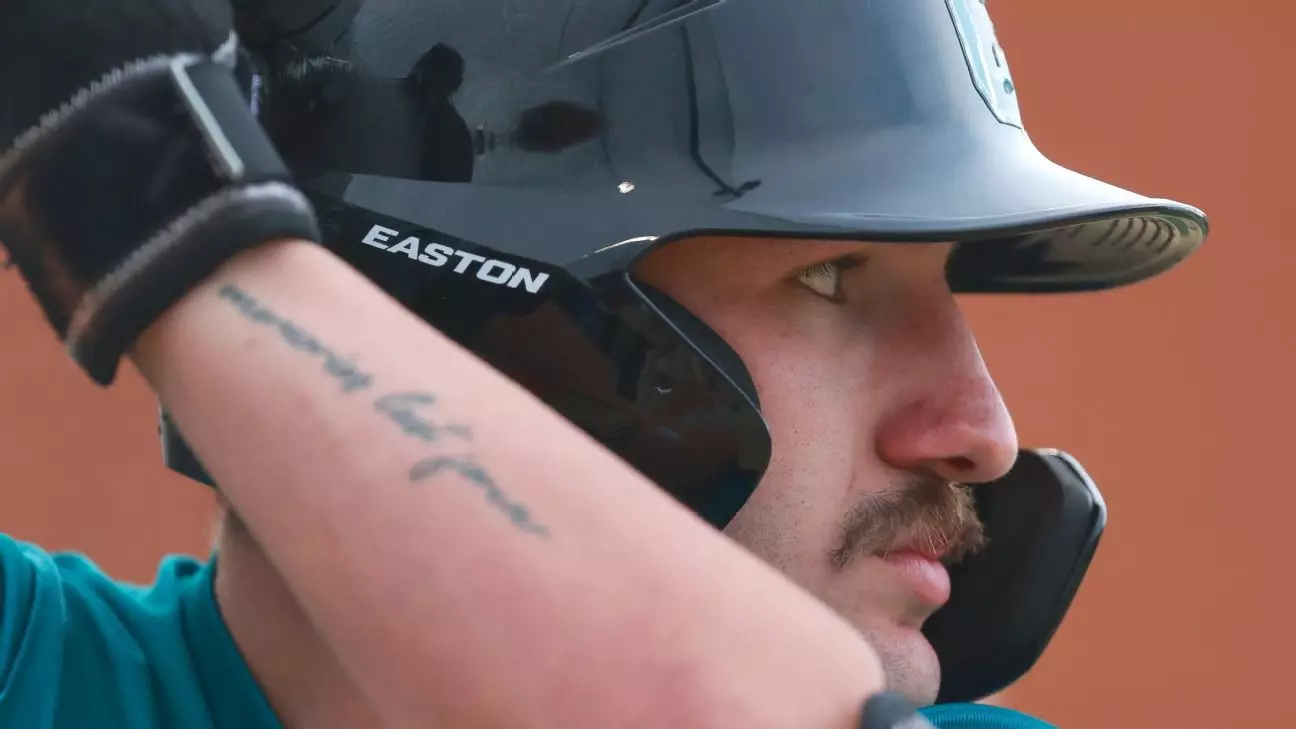In the competitive world of professional baseball, reputations can be built—and shattered—within moments. This was the unfortunate fate of Derek Bender, a former catcher for the Minnesota Twins’ minor league affiliate, who has found himself embroiled in a scandal involving allegations of pitch-tipping. Following a reported incident during a September 2023 game, Bender faces a potential permanent ban from Major League Baseball (MLB), leaving him grappling with both professional and personal ramifications.
A Promising Career Under Siege
Bender, a 22-year-old catcher drafted in the sixth round out of Coastal Carolina University, had dreams of making it to the major leagues. He showed promise with a solid collegiate batting average of .326, indicating a bright future ahead. After signing with the Twins for $297,500, he joined the Fort Myers Mighty Mussels and began his professional journey. However, his tenure in the league took a dark turn when he allegedly informed opposing hitters about pitches being thrown by his team’s pitcher, Ross Dunn, during a crucial doubleheader. This act contributed to his team’s defeat, which knocked them out of playoff contention.
Sources reported that coaching staff from the opposing Lakeland Flying Tigers brought this issue to light after the game, leading to heightened scrutiny from MLB. The ramifications of such allegations are intense, especially for a player just beginning his career. Not only do these claims cast a shadow over Bender’s character, but they also threaten his future opportunities within the sport.
In an interview with The Athletic, Bender vehemently denied the allegations, asserting that he never intended to undermine his team’s efforts. “No,” he stated firmly when questioned about his actions. He expressed deep emotional turmoil, revealing that he had received death threats and faced public backlash, leading him to go silent on social media. The psychological impact of the controversy is evident as he navigates the stigma that comes with such serious accusations.
Bender’s accounts depict the aftermath as isolating; he found that friendships he believed were strong began to wane. “It’s not like I’m getting accused of committing a crime,” he lamented, emphasizing the unfairness he feels surrounding the dissemination of information that could ruin not just his career, but also his personal relationships. The fallout has made maintaining connections with former teammates, including Dunn, increasingly challenging.
Amidst the chaos, Bender stated that the Twins had offered him a chance to stay within their organization if he would admit to the allegations and offer an apology. Although he eventually issued an apology, the ambiguity surrounding its content raises questions. Was he apologizing for the act itself, or simply under pressure to preserve his career?
The situation took another twist when his agents at Octagon dropped him as a client, citing his decision to engage with the media while the investigation was ongoing. For Bender, the choice to speak out was not merely a desperate grasp at salvaging his career but a step towards reclaiming his narrative. “It’s about gaining control over my life,” he reflected, suggesting a desire for autonomy in the face of overwhelming scrutiny.
Despite the prevailing uncertainty, Bender is attempting to reclaim his place in professional baseball. He has plans to play for the Brockton Rox, an independent league team this summer, aiming to prove that he still has what it takes to succeed on the field. With duty pulling in multiple directions—his ambitions as a player and the fight for his reputation—Bender’s determination shines through.
At the heart of this saga lies a broader issue related to how allegations can drastically impact the lives of athletes. As Bender understands all too well, a single moment can lead to a cascade of events that affect not just careers but also mental and emotional well-being. While he may hope to silence the doubters through performance, the journey ahead is fraught with obstacles that will test not only his skills but also his resilience as he strives to prove the integrity of his character.
In a game where the fine line between victory and defeat often rests increasingly on intangible factors like trust, reputation, and perception, Bender’s experience serves as a stark reminder of how quickly everything can change within the competitive arena of sports.

